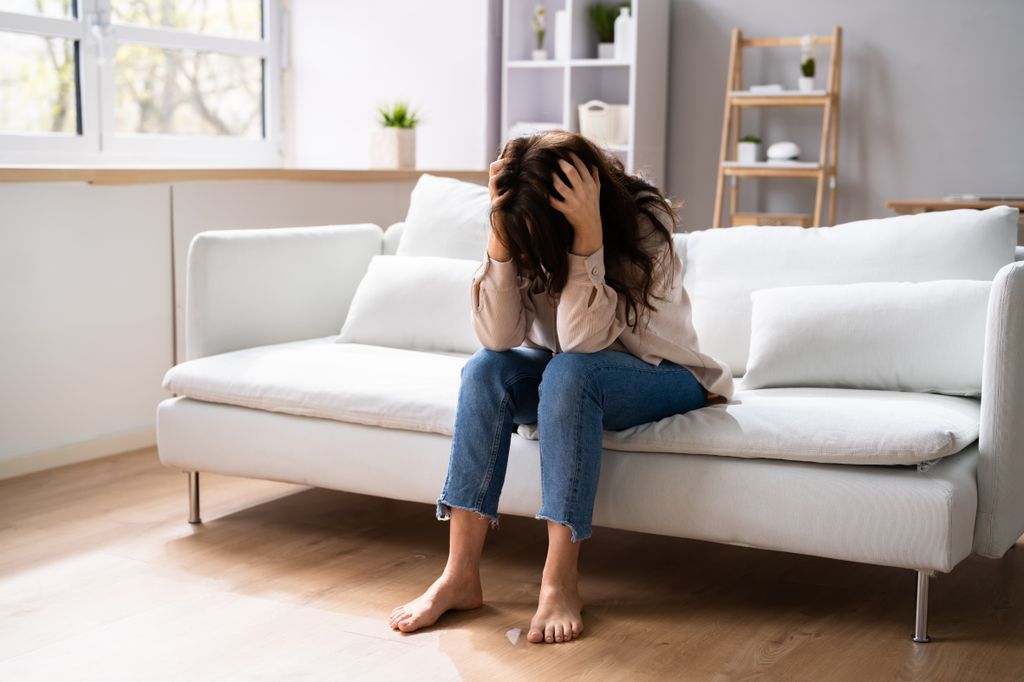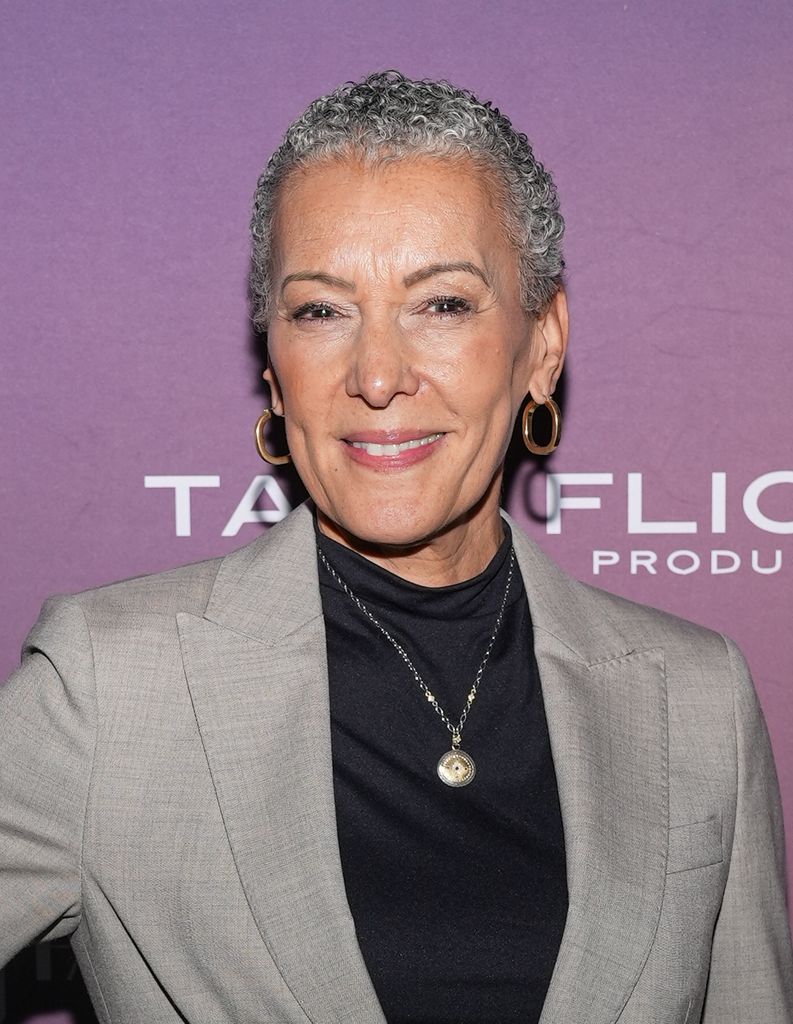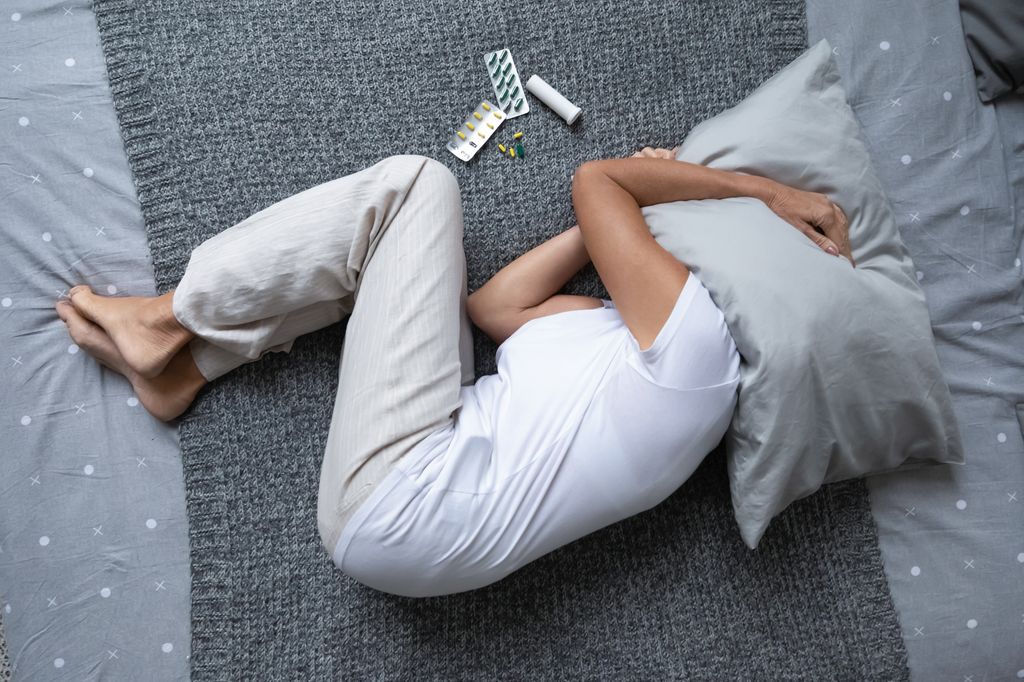
In the wake of the tragic death of cult British singer Danielle Moore, who took her own life after experiencing severe mental health struggles during perimenopause, experts are calling for more understanding surrounding the often blurred lines between depression and the crippling anxiety that many women suffer with during this hormonal stage of life.
Hormonal changes can cause a rollercoaster of emotions during perimenopause, and mood swings are not often spoken about or taken seriously, leaving women feeling overwhelmed, confused and isolated about their changes of character.
Is it hormones? Or is it something more chronic such as depression? These are common questions that experts insist need to be discussed more openly so women can get the right course of treatment.
Dr. Sharon Malone, a leading OB/GYN and Chief Medical Advisor at online menopause healthcare platform Alloy insists that women must consider their mental health history first when seeking clarification.
“If you have had a history of depression, postpartum depression, severe premenstrual syndrome or PMDD you are also at risk of developing depression during hormonal changes in perimenopause,” she explains.
But for some women, the onset of depression or anxiety during perimenopause may be entirely new and as Dr. Malone emphasizes, it is then that hormonal changes should be a primary consideration when these symptoms arise.
“If you’re within the perimenopause window and experiencing low mood, your first question should be if the cause is hormonal. We cannot deny that hormones affect our brains,” she explains.
Interestingly, research and clinical studies show that these mental health challenges tend to be more pronounced during perimenopause than after menopause.
ADVICE: I cleared menopausal brain fog with this small morning swap
“Depression and anxiety tend to be worse in perimenopause than after your hormones settle down,” explains Dr. Malone, who is a trusted friend and confidante to former First Lady Michelle Obama. “If you experience those symptoms, unless there’s something really obvious going on in your life, then it should be something to be considered.”
Unfortunately, like Ms. Moore, many women facing these challenges may be misdiagnosed or inadequately treated. Following the inquest into her tragic death, Danielle’s husband, James Ensell insisted that there must be more discussion about “the prevalence of neurological and psychiatric symptoms during perimenopause.”
And as Dr. Malone points out, antidepressants may provide partial relief but fail to address the root cause of the symptoms.
“A lot of women come in with these complaints, and they end up getting treated for depression with an antidepressant, and that may help a little bit with those symptoms, but it does nothing for all the other things that are going to come up. The better solution would be hormone replacement therapy.”
Describing his wife as “unique and remarkable”, Mr Ensel said he wanted to use her passing to highlight the mental impact of perimenopause, something “well-known within the scientific community, but little talked about outside it”.
READ: Menopause made me forget words and names – here’s what helped
And this is why experts including Dr. Malone are dedicating their careers to educating women about perimenopause and working to improve access to effective treatments.
“The switch from private practice and going to [an accessible platform such as] Alloy, was a simple one because I’m not doing anything differently in terms of educating women and trying to get them treatment when it’s necessary,” she says. “But before I was doing it just one one-on-one in the office, and there’s only so many women you can get to, and there’s only so much time you have to talk in any one visit.”
DISCOVER: Are private menopause clinics safe? A doctor explains
Dr. Malone and her team provide accessible education and treatment options to women across the United States, addressing two key barriers: lack of information and difficulty accessing care. “Here in the United States, finding doctors is a problem. So, we’ve got two things; we need education, and we need access, and so you put those two together, and that’s when you’re able to really make an impact,” she explains.







